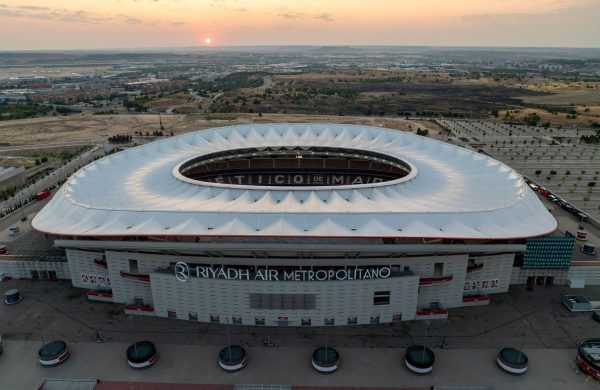When a Real Estate Tycoon Holds Presidency
- Update Time : Thursday, August 21, 2025

—Mahfuzur Rahman—
What can happen when a real estate tycoon holds the presidency? Probably, he or she cannot get out of the idea of developing a land and selling it to people. This literally happened to Donald Trump. After the end of the tenure of Joe Biden, when people around the world were thinking of de-escalation of conflicts in the Gaza Strip and when they were thinking that Israelis would be forced to stop their offensives against the Palestinians in Gaza, the new tenant of the White House went further and instead announced a weird idea of displacing all Palestinians from Gaza and making it a lucrative strip of luxurious real estate business.
Trump was not joking. He named his dream project Riviera. The Bangla speakers must have remembered the landlord’s offer to buy three bighas of Upen’s land.
We do not know why Trump suddenly thought of doing it, or whether the idea had been in his mind for quite some time! Some Israelis, definitely the far-right, were calling for the same for years. Who knows whether those calls were a part of the big game that has come to our forefront now! Maybe some people have financed Donald Trump’s presidential campaigns with exactly this in the back of their mind.
The Gaza Strip was always a Palestinian land. After the years of Ottoman occupation, the land went to British control after the First World War and eventually became Mandatory Palestine. Egypt was then reluctant to take over the strip except in 1948. It only came under active control of Israel during its first Arab invasion of 1967. Despite this, Palestinians were living in the area at ease. No one had any territorial claim for Gaza other than military control; it was generally recognised as Palestinian land. It is exactly the area where Hamas, a ‘militant group’ of the Palestinians, got the majority of the seats in the parliamentary elections of 2006.
The Gaza Strip is a fairly tiny strip along the east coast of the Mediterranean Sea. It is only 41 km long from north to south. Two-thirds of it has a width of 6 km, and the rest is around 12 km from east to west. When the State of Palestine was constituted, the Gaza Strip became one of the two separate territories of the state. It has a population of more than two million. Most of them are Sunni Muslims, and all of them are Palestinian.
As it has a large coastline, it can be a lucrative site for luxurious resorts. The only difficulty is its population and the historic legacy of it. Donald Trump may not care about undermining international laws or norms. After all, the forced displacement will be less hazardous than the genocide. Therefore, Trump takes solace as if he is doing a big favour to the Palestinians.
He declared his Riviera plan on 4 February of this year. After that, for the entire February and March, he made many self-contradictory remarks on his plan. Sometimes he made a U-turn, but afterwards he made more twists. Yet, this does not mean that he was not serious about his plan. Rather, it was just the opposite. Marco Rubio, the US Secretary of State, and Mike Waltz, the National Security Advisor of Trump, made several remarks during the period only to make Trump’s proposal all too serious. Except for the US and Israel, none of the countries welcomed his plan. The Arab League eventually presented an entirely different plan. Many directly condemned his idea as directly infringing the territorial integrity and sovereignty of the State of Palestine and as essentially breaching all international laws and norms. Mass forced dislocation of this stature will surely be tantamount to war crimes and crimes against humanity as per the existing international law. Trump, on the other hand, has started a deliberate campaign on his plan and is brewing up a coalition of opportunity seekers. This is not limited only to his son-in-law or former British Prime Minister Tony Blair.
Where will the two million Palestinians be relocated? Trump cares less about the location. He once indicated Egypt and Jordan. Obviously, both countries have objected and rejected that in the strongest possible terms. The names of Libya, Syria and Sudan also came up. It reminded me of Hitler’s Madagascar Plan, when he once planned to send all Jewish people as far as Madagascar. The issue of displacement is nothing new to US strategy. It worked on similar plans elsewhere. And for developing it as a model, it played with the people of several islands in the Philippines.
Are we then witnessing the rise of another Hitler? Israeli Prime Minister Benjamin Netanyahu would be a staunch supporter of the plan. He has already done half of the work by committing genocide against the Palestinians since October 2023. The Arab League produced an alternative to Trump’s proposal, but its members are not united, and they are not as vocal as before to uphold the cause of the Palestinians. An irony remains where the Arab States are no longer comfortable with the presence of Hamas in the Gaza Strip. Therefore, the idea of dislocation may not receive adequate opposition from the Arabs. Maybe Trump will need to find a suitable taker, which, for example, maybe Libya. Not many countries in the region have the means to say no to Trump’s face. After the fall of Gaddafi’s regime, the US blocked as much as US$30 billion of Libya’s money that was kept at the US Federal Reserve Bank. It means the US may take leverage of its financial muscle over the neighbouring states.
What do all these mean? Will Trump be successful with his overambitious plan? He is simply playing with fire. He now has three years left on his presidency. Three years is not enough to bring all the stakeholders on the same boat on a controversial proposal of this sort. Then there are physical challenges of relocation. There will be deadly challenges from the ground; this is for sure. The Palestinians, who are sacrificing their lives every other day only to ensure their dignity, will never be complicit in such a wild, ambitious, conspiratorial and inhumane plan.
But does that mean Trump, Netanyahu or their cronies will stop here? Unfortunately, the answer to this is also a no.
Then what could be an answer to the crisis? The question is definitely a big one. It is definite that the Palestinians themselves lack the capacity to fight against the injustice, conspiracy and the military offensives of the Israelis, and Israel’s steadfast ally, the US, and the Palestinians themselves have a strong division among themselves. The State of Palestine and Hamas are in just opposite positions. There is less and less sympathy and support for the Palestinians in the Arab or the Muslim world. The support in the West is not effective. If these remain hostile, the future of Palestine is still bleak. One needs to see how these hostilities can be minimised.
————————————————————–
The writer is a former Bangladeshi Ambassador



















